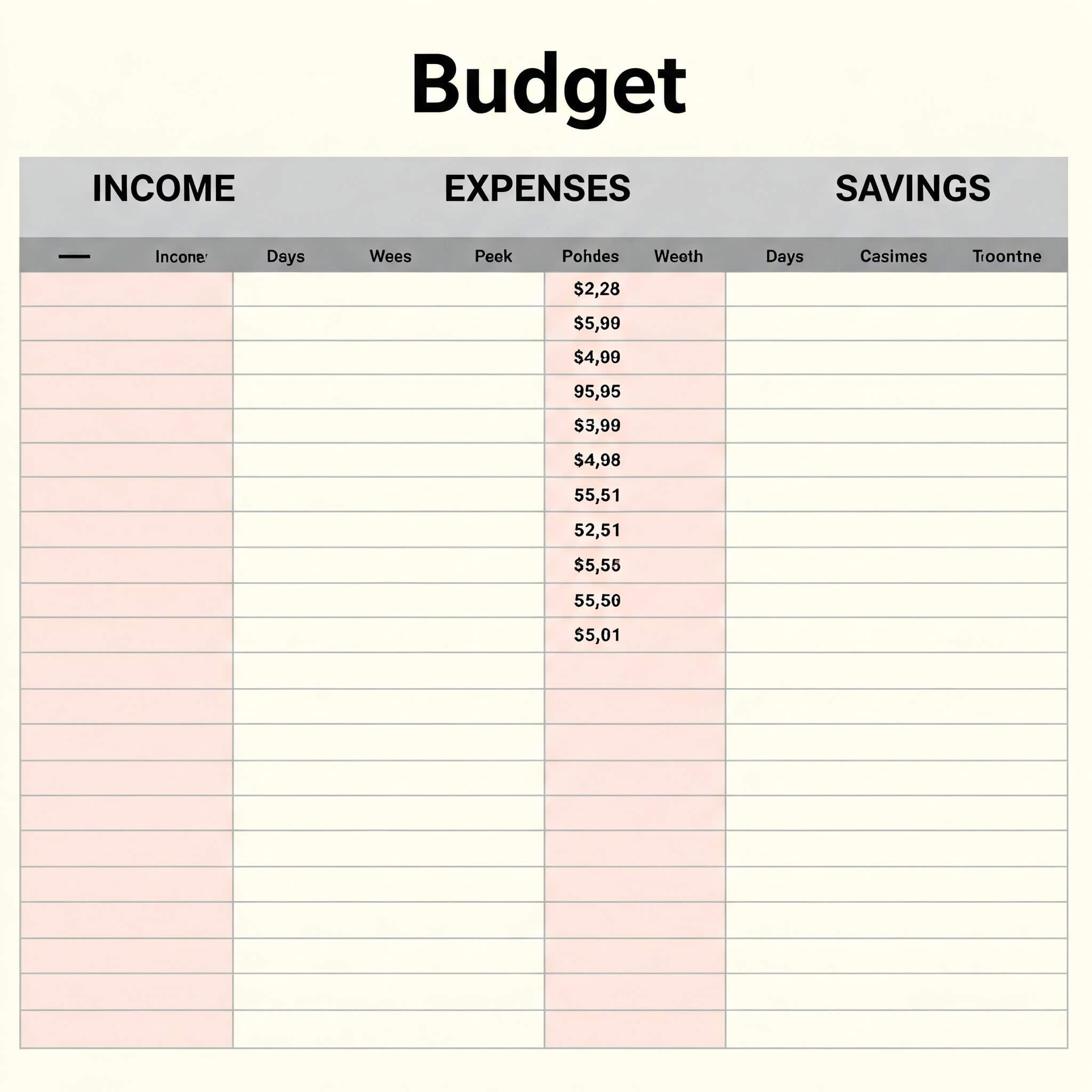Saving money is easy, right? You just set aside some cash and leave it alone. But in real life, it's much tougher than it appears. Life has surprises—surprise bills, irresistible sales, or simply the desire to reward yourself after a long week. So, what sets good savers apart from those who fail? The response is self-discipline. In this article, we’re going to dive deep into why is self-discipline the key to becoming a good saver? and how it can change your financial life for the better.
Self-discipline is not about never having fun or being perfect. It's about making decisions that support your goals, even when it's hard. It's the inner strength that enables you to pass up a $20 impulsive purchase so you can say yes to a secure tomorrow. Let's take a look at why this one skill is so strong and how you can harness it to become a better saver.
Why is self-discipline the key to becoming a good saver?
Okay, let's cut to the core. Self-discipline is your power to hold yourself back—to do what you know you must, even though you don't want to. When it involves money, it's the gap between spending everything you make and putting some aside for the future. But why is self-discipline the key to becoming a good saver? Because without self-discipline, your money trickles through your fingers like sand.
Consider your daily routine. You're strolling by a coffee shop, and this $5 latte smells incredible. If you lack self-discipline, you spend $25 a week on it. When you have self-discipline, you brew coffee at home and keep that money for yourself. That's $100 in a month. In a year, that's $1,200! That's actual cash, and it all hinges on one thing: self-discipline.
Saving isn't about money—it's about planning. It's choosing what you want your future to be like and making a plan to get there. Self-discipline is what keeps you on track, even when distractions arise. Whether you're saving for a new phone, a home, or just a peace of mind, you need the willpower to get it done.
The Mindset Behind Self-Discipline and Saving
So why is self-discipline the key to becoming a good saver? It begins in your head. Individuals who are good at saving don't regard money as money to waste—money is something to utilize. Self-discipline allows you to change from "I'm going to use it now" to "I'm going to save it later.
This is not a natural way of thinking for everyone. We're programmed to want things immediately—it's human nature. But self-discipline reprograms that tendency. It shows you how to wait for greater rewards rather than taking smaller ones now. That's the key to saving.
Small Choices, Big Impact
Another way that self-discipline is why is self-discipline the key to becoming a good saver? is that it's the little choices. Saving isn't typically one huge dramatic thing—it's lots of small ones. Forgetting that extra snack at the grocery store, opting for the lower-cost phone plan, or bringing lunch instead of grabbing something to eat out. These are not thrilling choices, but they matter.
Self-discipline allows the small wins. It's that little voice inside your head speaking to you, saying, "You don't need it now." All the while, and it does make a difference over time, the $5 or $10 ends up becoming hundreds or thousands. It's steady and slow but effective.
The Connection Between Self-Discipline and Financial Success
Let's take a step back. Saving money is not only about having extra money—it's about creating financial success. And that's where self-discipline comes in. why is self-discipline the key to becoming a good saver? Because it's the driving force behind every wise money decision.
Suppose you make $2,000 a month. Without self-discipline, you might blow it all—rent, food, a night on the town, and voila, it's gone. But with self-discipline, you choose to save $200 a month. That's $2,400 in a year, which can go toward an emergency fund or a good vacation. It's not chance or a high salary that does it—it's steady effort.
Financial success is more than saving, naturally. It's about living below your means, investing, and paying off debt. But all of those begin with self-discipline. Good savers aren't born—they're created through patience and practice.
How Self-Discipline Prevents Impulse Spending
One of the largest dangers to saving is impulse spending. You know the drill: you're browsing online, and before you know it, you're $60 in the hole in some unplanned-for shopping cart. Why is self-control the secret to being a good saver? Because it allows you to put the brakes on those moments.
Self-discipline is like an inner bouncer. It guards the door and says, "Hold up—do you really need this?" Most of the time, you don't. By fighting those desires, you keep your money right where it needs to be—in your savings account. Weeks, months, and years later, that self-control creates a healthy financial cushion.
Turning Saving Into a Habit
Habits are strong. Brush your teeth daily? That's a habit. Set aside money each paycheck? That can be a habit as well. why is self-discipline the key to becoming a good saver? It's what makes saving go from a "maybe" to a "must."
Begin with something little, such as saving $15 a week. Initially, it requires effort—self-discipline compels you to do it even when you'd prefer to spend. But eventually, it becomes second nature. You don't even think about it; you simply save. That's the magic of discipline—it creates habits that stick.
Real-Life Example of Discipline in Action
Let's make it real. Meet Sarah, a 30-year-old teacher. She had spent her entire paycheck each month—no saving, no scheme. Then she changed. She began to put aside $50 each month even if it took eating takeout food some days. It was hard, but self-discipline pushed her along. In two years, she had $1,200 stored away—plenty to use for a car repair without worries. That's why is self-discipline the key to becoming a good saver
—it makes dreams happen.
Why Self-Discipline Is the Key to Being a Good Saver in Hard Times
Life is not predictable. You're flying along one day, and the next you've got a $500 vet bill or a broken refrigerator. Those are the times that try your saving abilities. So, why is self-discipline the key to becoming a good saver? Because it helps you stay level when the going gets tough.
Take an emergency fund, for instance. They tell you to have 3-6 months of expenses stashed away. That's a huge amount of money! Without self-discipline, it won't happen—you'll spend it before you can save it. With self-discipline, you whittle it away, month by month, until you're ready.
Tough times aren't emergencies only, though. Sometimes it's emotional—a bad day at work makes you want to shop online. Self-discipline steps in and says, "Not today." It keeps your savings safe, no matter what life throws at you.
Handling Unexpected Expenses
Let’s say your washing machine dies, and a new one costs $400. If you’ve been saving $30 a month with self-discipline, you’ve got $360 after a year—almost enough to cover it. Without that habit, you’d be stuck borrowing or stressing.why is self-discipline the key to becoming a good saver? It’s your safety net.
Staying Strong During Emotional Lows
Emotions and money are linked. When you are sad or bored, spending is enjoyable—for a minute. Then your savings suffer. Self-discipline keeps you going through those moods without breaking into your bank account. That's yet another reason why is self-discipline the key to becoming a good saver?—it guards your gains.
Changing When Money's Tight
What if you lose income? Perhaps you are in between a job or having your hours cut. Saving can seem impossible. Yet why is self-discipline the key to becoming a good saver? Because it allows you to adjust. Rather than give up, you save $10 rather than $50. Not much, perhaps, but keeps the habit alive until things return to normal.
Self-Discipline vs. Motivation: Why Discipline Wins Every Time
Here's the typical error: assuming motivation is sufficient to save money. Motivation is wonderful—it's that flash of energy when you say, "I'm going to save $1,000!" But it runs out. why is self-discipline the key to becoming a good saver? Because it takes up where motivation leaves off.
Motivation is like a sunny day—pleasant when it exists, but ephemeral. Self-discipline is like an umbrella—it exists rain or shine. Saving doesn't have to be done when one feels excited; it must simply be done. Good savers don't count on emotions—they count on action.
Defeating Procrastination with Discipline
"I'll save next month" is a lie that we all believe. Next month becomes next year, and the situation doesn't change. What makes self-discipline the principle to being an effective saver? It kills putting things off. You decide that you want it, you take action now—and not later. That's the way savings happen.
Motivation Fades, Discipline Stays
Imagine this: You're excited about saving for vacation. Week one, you saved $20. Week two, you're not feeling it, and you splurge instead. Motivation just ran out of steam. By self-discipline, you could save that $20 regardless of what. It's not spectacular, but it works.
Self-Discipline Makes You a Better Saver in Practical Ways
Alright, so why is self-discipline the key to becoming a good saver? Because it's practical—it provides you with tools to win. Let's examine some actual ways it works in your daily life. First, it allows you to budget. A budget is simply a map for your money, but to stick to it takes courage. Self-discipline prevents you from spending too much on clothes or gadgets so you can save instead. Second, it gets automation done. Creating automatic transfers to savings is a good idea, but drawing from that account spoils it—self-control prevents it. Third, it eliminates wastefulness. Cut that useless streaming service you never use or forgo the $10 martinis.
It's not pleasant, but it works.
Setting and Sticking to Goals
Goals provide saving direction. Need $2,000 for a laptop? Self-discipline translates it into steps—$50 per month for 40 months. It gets you there, week by week. That's why is self-discipline the key to becoming a good saver? —it makes wishes turn into plans.
Staying Away from Lifestyle Creep
Ever notice how expenses increase as income does? You receive a raise and now need a more expensive car. That's lifestyle creep, and it devours savings. Self-discipline insists, "Save the extra instead." It's how good savers get ahead.
Saying No to Peer Pressure
Friends out every weekend? It's difficult to miss. But why is self-discipline the key to becoming a good saver in the long run? It provides you with the courage to say no and save that $30 instead. Your bank account is grateful later on.
why is self-discipline the key to becoming a good saver for the Long Haul?
Saving isn't short-term—it's about your entire life. why is self-discipline the key to becoming a good saver? Because it creates wealth over decades.
Consider retirement. Save $300 a month starting at age 25, with 5% interest, and you might have more than $400,000 by age 65. That's compound interest in action, but only if you begin early and remain consistent. Self-discipline allows that to happen. It's also security—having money saved up means fewer worries about bills or emergencies later in life.
Patience Pays Off
Saving takes a long time. You won't notice big results immediately, and that's where people give up. why is self-discipline the key to becoming a good saver? It helps develop patience. Stick to it, and the benefits arrive.
Creating a Legacy
Want to leave something for your children or a cause you believe in? Long-term saving makes it possible. Self-discipline converts small deposits into a large effect in the long run.
How to Develop Self-Discipline for Improved Saving
Good news: you don't inherit self-discipline—you develop it. why is self-discipline the key to becoming a good saver? Because anyone can acquire it through effort.
Begin small—set realistic savings of $5 per week. Reward little victories to keep yourself encouraged. Protect yourself from temptation by keeping your goals in sight—stick a photo of your dream home on your fridge. And don't be too hard on yourself—treat yourself occasionally, just not excessively.
Keeping Track of Your Wins
Seeing success creates discipline. Monitor savings by using an app or a notebook. It feels great and keeps you moving when $50 becomes $100. That's wwhy is self-discipline the key to becoming a good saver? —it responds well to results.
Practice Makes Perfect
Self-discipline is like a muscle. The more you exercise it, the more power it has. Say no to one little thing today, and tomorrow it's easy. Before long, saving becomes second nature.
Conclusion: Master Self-Discipline, Master Saving
So,why is self-discipline the key to becoming a good saver? It's the foundation of every financially savvy decision. It prevents waste, creates habits, and keeps you in the future. Whether you're saving $10 or $1,000, self-discipline is what makes it last. Begin now. Choose a goal, create a plan, and stick to it. It's not always simple, but it's always worth it. With self-discipline, you're not merely saving money—you're building freedom, security, and a life you love.





